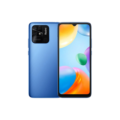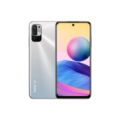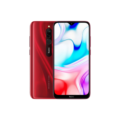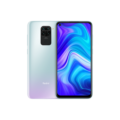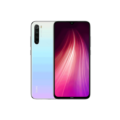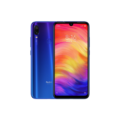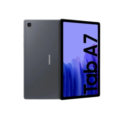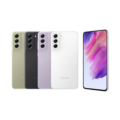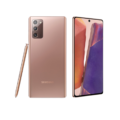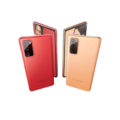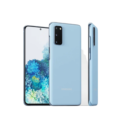Redmi Note 9 Pro Harga Malaysia
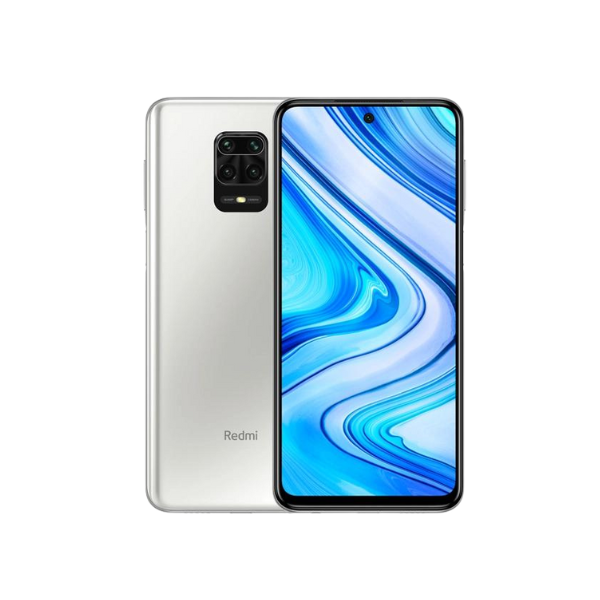

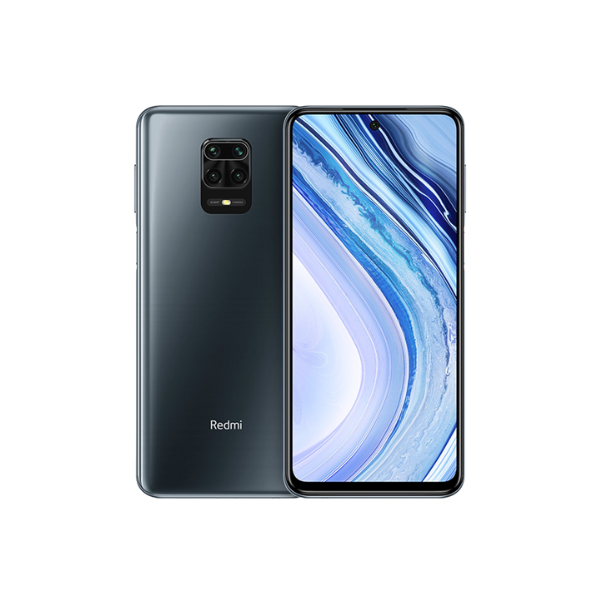
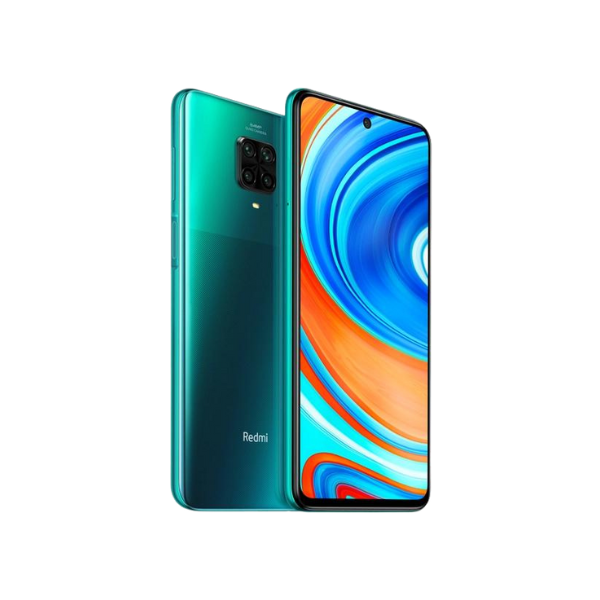
- CPU: Qualcomm SM7125 Snapdragon 720G (8 nm)
- RAM: 6 GB, 8 GB
- Storage: 64 GB, 128 GB
- Display: IPS LCD
- Camera: 64 MP Quad Camera
- OS: Android 10, MIUI 11
- AnTuTu Total Score: 324.596 (v9), 279.625 (v8)
Redmi Note 9 Pro Harga Malaysia Spesifikasi Malaysia
General
| Device Type | Smart Phone |
| Model | M2003J6B2G |
| Announced | 30 April, 2020 |
| Released | 05 May, 2020 |
| Status | Available |
| Price | RM699 - RM886 |
Design
| Type <strong>Design Type</strong> called form factor refers to a mobile phone's size, shape, and style as well as the layout and position of major components of phone. There are three major form factors seen in mobile phones => bar phones, folding phones and sliding phones. | Bar |
| Dimensions | 165.8 x 76.7 x 8.8 mm (6.53 x 3.02 x 0.35 in) |
| Weight | 209 g (7.37 oz) |
| Body Type | Glass front (Gorilla Glass 5), glass back (Gorilla Glass 5), plastic frame |
| Colors | Tropical Green, Glacier White, Interstellar Gray |
Network
| 4G Network | 1, 2, 3, 4, 5, 7, 8, 20, 28, 38, 40, 41 |
| SIM <strong>SIM</strong> (Subscriber Identity Module) is a small card that contains mobile network subscriber's account information. This allows the phone using the card to attach to a mobile network. The SIM card is most commonly associated with GSM and UMTS mobile networks. Moving a SIM card from one phone to another allows a subscriber to switch mobile phones without having to contact their mobile network carrier. SIM cards can also be used by a phone to store limited amounts of data, such as phone numbers and text messages. | Nano SIM |
| Dual SIM | dual stand-by |
Display
| Display Type <strong>Display Technology => </strong> A number of display technologies and types used in mobile phones => TFT (Thin Film Transistor), IPS (In-Place Switching), OLED (Organic Light Emitting Diode), AMOLED (Active-Matrix Organic Light-Emitting Diode), Super AMOLED (an even advanced version of AMOLED), Resistive Touchscreen (Resistive touchscreens contain two layer of conductive material with a very small gap between them which acts as a resistance), Capacitive Touchsceen (Capacitive touchscreen technology consists of a layer of glass coated with a transparent conductor) | IPS LCD |
| Size | 6.67 inches, 107.4 cm2 (~84.5% screen-to-body ratio) |
| Resolution | 1080 x 2400 pixels, 20:9 ratio |
| Display Colors <strong>Display Colors</strong> is refers to the number of different shades of colors that the screen is capable of displaying => 64K colors, 256K colors and 16 million colors, Obviously 16M is highest available range of colors and better than others. | 16 Millions Colors |
| Pixel Density <strong>Pixel Density (PPI)</strong> is refers to the concentration of pixels on a particular display, measured in pixels per inch (ppi). Pixel density is calculated by dividing the diagonal pixel resolution of a display by its diagonal size, higher pixel density better display quality. | (~395 ppi density) |
| Touch Screen | Yes, Multitouch |
| Display Protection <strong>Display Protection => </strong> Gorilla Glass is a special alkali-aluminosilicate glass shield with exceptional damage resistance that helps protect mobile displays from scratches, drops, and bumps of everyday use, It is always better to go for a smartphone with Gorilla Glass for that added protection and peace of mind. | Corning Gorilla Glass 5 |
Camera
| Rear Camera <strong>Camera</strong> is able to capture photographs and usually videos, The most important characteristics of a camera are the resolution (measured in megapixels), lens focus type (fixed or automatic), higher megapixel cameras are known to capture higher quality photos, but not always a good measurement of the photos quality. |
Quad Camera 64 MP, f/1.9, 26mm (wide), 1/1.72&amp;quot;, 0.8µm, PDAF 8 MP, f/2.2, 119˚ (ultrawide), 1/4.0&amp;quot;, 1.12µm 5 MP, f/2.4, (macro), AF 2 MP, f/2.4, (depth) |
| Front Camera | 16 MP, f/2.5, (wide), 1/3.06&amp;quot;, 1.0µm, 1080p@30/120fps |
| Image | 2160p |
| Video | 4K@30fps, 1080p@30/60/120fps, 720p@960fps, gyro-EIS |
| Camera Features | LED flash, HDR, panorama |
Software
| Operating System <strong>OS => </strong> Every computer system run on a base software called Operating System (OS). Operating System controls all basic operations of the computer (such as smartphone, PDAs, tablet computers and other handheld devices). The Operating System allows the user to install and run third party applications (apps), apps are used to add new functionality to the device. | Android 10 |
| User Interface <strong>UI</strong> or user interface of a device is the look and feel of the on-screen menu system. How it works, its color scheme, how it responds to button presses, all of these things are part of the user interface. | MIUI 11 |
Hardware
| Chipset <strong>Chipset</strong> is a group of integrated circuits designed to perform one or a more dedicated functions, often with real time computing constraints, Popular smartphones are equipped with more advanced embedded chipsets that can do many different tasks depending on their programming. | Qualcomm SM7125 Snapdragon 720G (8 nm) |
| CPU <strong>CPU</strong> (Central Processing Unit) mostly known as processors, CPU processes instructions in order to carry out certain functions that make your device operate properly. Processors are often described as the brain of computers, smartphones and tablets, Smartphones and tablets rely on processors to carry out their every task, Processors are an incredibly important factor in selecting any type of computing device, including your smartphone. | Octa-core (2x2.3 GHz Kryo 465 Gold & 6x1.8 GHz Kryo 465 Silver) |
| GPU <strong>GPU</strong> (Graphics Processing Unit) is a single-chip processor designed to rapidly manipulate and alter memory to accelerate the creation of images in a frame buffer intended for output to a display, This includes things such as lighting effects, object transformations, and 3D motion. | Adreno 618 |
| RAM (Memory) <strong>RAM</strong> (Random Access Memory) is a type of computer memory that can be accessed randomly, any byte of memory can be accessed without touching the preceding bytes that allows information to be stored and accessed quickly from random locations. RAM is the most common type of memory found in computer systems, smartphones, tablets and other electronic devices. | 6 GB, 8 GB |
| Internal Storage <strong>Internal Storage</strong> is a data storage space (flash memory) mostly used in smartphones, tablets and other electronic devices where operating system, apps, music, photos, videos, files and other user data Is stored. | 64 GB. 128 GB |
| Card Slot <strong>Memory Card Slot</strong> is a special slot for inserting a memory card. Memory cards allow you to expand the phone's built-in memory, A memory card (sometimes called a flash memory card or a storage card) is a small storage medium used to store data such as text, pictures, audio, and video, for use on small, portable or remote computing devices such as mobile phones, mp3 players, digital cameras. | microSDXC (dedicated slot) |
| Sensors <strong>Sensors</strong> are electronic components that detects and responds to some type of input from the physical environment. The specific input could be light, heat, motion, moisture, pressure and location, The output is generally a signal that is converted to use in computing systems, a location sensor, such as a GPS receiver is able to detect current location of your electronic device. | Fingerprint (side-mounted), accelerometer, gyro, proximity, compass |
Battery
| Battery Type <strong>Battery Type => </strong> Cell phones run on various kinds of batteries depending on the manufacturer, phone size or shape and features. There are basically four types of cell phone batteries => Lithium Polymer, Lithium Ion, Nickel Metal Hydride and Nickel Cadmium. | Li-Poly (Lithium Polymer) |
| Placement | non-removable |
| Capacity <strong>Battery Capacity</strong> is a measure (typically in Amp-hr) of the charge stored by the battery, and is determined by the mass of active material contained in the battery. The battery capacity represents the maximum amount of energy that can be extracted from the battery under certain conditions. | 5020 mAh |
| Charging | 30W wired |
Connectivity
| Bluetooth <strong>Bluetooth</strong> is a wireless communications technology for exchanging data between mobile phones, headsets, computers and other network devices over short distances without wires, Bluetooth technology was primarily designed to support simple wireless networking of personal consumer devices. | 5.0, A2DP, LE |
| Wi-fi <strong>Wi-Fi</strong> is a popular wireless networking technology using radio waves to provide high-speed network connections that allows devices to communicate without cords or cables, Wi-Fi is increasingly becoming the preferred mode of internet connectivity all over the world. | Wi-Fi 802.11 a/b/g/n/ac, dual-band, Wi-Fi Direct |
| Wi-fi Hotspot | |
| USB | USB Type-C 2.0, USB On-The-Go |
| GPS <strong>GPS</strong> The Global Positioning System is a satellite-based radio navigation system, GPS permits users to determine their position, velocity and the time 24 hours a day, in all weather, anywhere in the world, In order to locate your position, your device or GPS receiver must have a clear view of the sky. | GPS, GLONASS, GALILEO, BDS |
| NFC <strong>NFC</strong> (Near field communication) is a set of standards for smartphones and similar devices to establish peer-to-peer radio communications with each other by touching them together or bringing them into proximity, usually no more than a few inches. | |
| Wireless Charging <strong>Wireless Charging</strong> (Inductive Charging) uses an electromagnetic field to transfer energy between two objects. This is usually done with a charging station. Energy is sent through an inductive coupling to an electrical device, which can then use that energy to charge batteries or run the device. | No |
Media
| Loudspeaker | Yes |
| Handsfree | 3.5mm jack |
Xiaomi melancarkan Redmi Note 9 Pro pertama kali di India pada 17 Mac 2020. Xiaomi Redmi Note 9 Pro diperkenalkan pada 30 April 2020, kemudian dilancarkan secara global termasuk Malaysia pada 5 Mei 2020.
Redmi Note 9 Pro juga meneruskan visi Xiaomi: menyediakan peranti yang berpatutan dengan spesifikasi yang tinggi.
Dilengkapi dengan skrin luas, daya tahan bateri yang kuat, dan spesifikasi yang hebat, Redmi Note 9 Pro telah menjadi kegemaran baru sebagai telefon Android berkualiti tinggi.
Untuk maklumat lanjut tentang spesifikasi Redmi Note 9 Pro, sila lihat ulasan Redmi Note 9 Pro di bawah.
Reka Bentuk
Redmi Note 9 Pro hadir dengan 3 pilihan warna, termasuk Glacier White, Interstellar Black, dan Aurora Blue. Ia mempunyai reka bentuk skrin penuh tanpa ‘bangs’ atau ‘notch’.
Telefon pintar ini menggunakan ‘punch hole’ atau lubang di bahagian atas tengah skrin, yang pasti memberikan kesegaran kepada reka bentuk telefon dari Xiaomi. Sisi Xiaomi Redmi Note 9 Pro diperbuat daripada plastik polikarbonat.
Untuk bahagian belakang, Xiaomi telah melapisinya dengan Gorilla Glass 5 seperti skrin di bahagian hadapan. Walaupun telah menggunakan Gorilla Glass 5, Xiaomi juga menyediakan lapisan perlindungan anti-calarkan tambahan untuk menjaga daripada calar.
Pengimbas cap jari diletakkan di bahagian kanan bersama butang daya yang terletak di bawah butang kelantangan.
Di sebelah kiri terdapat slot SIM dan microSD. Di bahagian bawah terdapat port audio 3.5mm, USB-C, mikrofon, dan pembesar suara.
Paparan
Redmi Note 9 Pro mempunyai skrin yang luas dengan saiz 6.67 inci. Panel LCD ini mempunyai resolusi 2400 x 1080 dengan dimensi 165.8 x 76.7 x 8.8 mm. Dengan demikian, apabila anda menonton video atau bermain permainan, saiz skrin ini akan memberikan pengalaman yang menyenangkan.
Skrin ini dilindungi oleh tiga lapisan kaca gorilla 5.0 dan juga meliputi bahagian belakang dan kamera belakang telefon pintar ini.
Kamera
Redmi Note 9 Pro dilengkapi dengan empat kamera belakang yang terdiri daripada kamera utama (48 MP) dengan bukaan f/1.8, kamera ultra-lebar (8 MP) dengan bukaan f/2.2, kamera makro (5 MP) dengan bukaan f/2.4, dan kamera kedalaman 2 MP (f/2.4).
Hasil foto kamera utama memang memberikan hasil yang cukup baik. Xiaomi berjaya menekan kebisingan pada Redmi Note 9 Pro.
Kamera makro yang dimiliki oleh peranti ini juga menghasilkan hasil yang cukup baik. Kamera makro pada Xiaomi Redmi Note 9 Pro mempunyai resolusi yang lebih tinggi jadi hasilnya juga lebih baik.
Sementara itu, kamera hadapan Redmi Note 9 Pro hanya mempunyai resolusi 16 MP. Kamera ini juga terletak di dalam punch hole yang terletak di tengah skrin telefon pintar ini.
Kamera hadapan pada peranti ini menggunakan sensor Omnivision OV16A1Q. Kamera ini menghasilkan gambar yang cukup baik apabila cahaya cukup terang.
Perisian
Xiaomi Redmi Note 9 Pro menggunakan Android 10 dengan antara muka MIUI 11.
Note 9S menyediakan pelbagai pilihan tema untuk menukar penampilan antara muka. Mengenai susunan aplikasi, ia hampir seperti iOS yang tidak mempunyai ‘app drawer’, tetapi meletakkan semua aplikasi di skrin utama.
Prestasi
Cipset Redmi Note 9 Pro menggunakan Snapdragon 720G yang membolehkan prestasi telefon pintar ini seimbang dan tidak memberi kesan kepada daya tahan bateri.
Redmi Note 9 Pro menggunakan cipset SD 720G yang bermakna ia sudah menggunakan modem X15. Modem yang digunakan menyokong LTE Cat 15 dan sudah menyokong ciri ‘3 Carrier Aggregation’ supaya dapat menangkap isyarat dengan betul.
Dilengkapi dengan 6GB/64GB dan 8GB/128 GB RAM dan memori dalaman, proses pemuatan semasa membuka aplikasi tidak mengambil masa yang lama.
Selain itu, penggunaan pemproses yang mempunyai kelajuan jam lebih cepat sebanyak 100 MHz juga merupakan satu sebab mengapa SD 720G lebih cepat.
Bateri
Redmi Note 9 Pro dilengkapi dengan bateri berkapasiti 5020 mAh. Bateri besar seperti ini sering boleh digunakan lebih daripada sehari. Ini tentu menjadi daya tarikan khas bagi mereka yang ingin membeli peranti ini.
Harga
Harga Redmi Note 9 Pro di Malaysia dibezakan berdasarkan saiz RAM yang tersedia, seperti:
- Untuk saiz RAM 6GB/64GB, harga bermula dari RM699.00 atau setara dengan 152.80$.
- Untuk saiz RAM 8GB/128GB, harga bermula dari RM886.00 atau setara dengan 193.68$.
Anda boleh melawat laman web rasmi di Mi Malaysia
Soalan Lazim
Bagaimana prestasi Xiaomi Redmi Note 9?
Cipset Redmi Note 9S menggunakan cipset Snapdragon 720G yang memberikan keseimbangan yang betul antara prestasi telefon pintar dan daya tahan bateri, supaya telefon pintar tidak panas dengan cepat.
Telefon ini sesuai untuk memasang banyak aplikasi dan bermain permainan yang berat. Disediakan dengan kapasiti bateri yang besar, telefon ini boleh digunakan untuk waktu yang lama, sehingga lebih daripada sehari.
Bagaimana paparan Xiaomi Redmi Note 9?
Telefon pintar ini mempunyai skrin IPS LCD 6.67 inci dengan resolusi 1080 x 2400 piksel. Berbeza dengan Redmi Note 9, yang membawa skrin yang hanya lebar 6.53 inci dan mempunyai resolusi 1080 x 2340 piksel.

